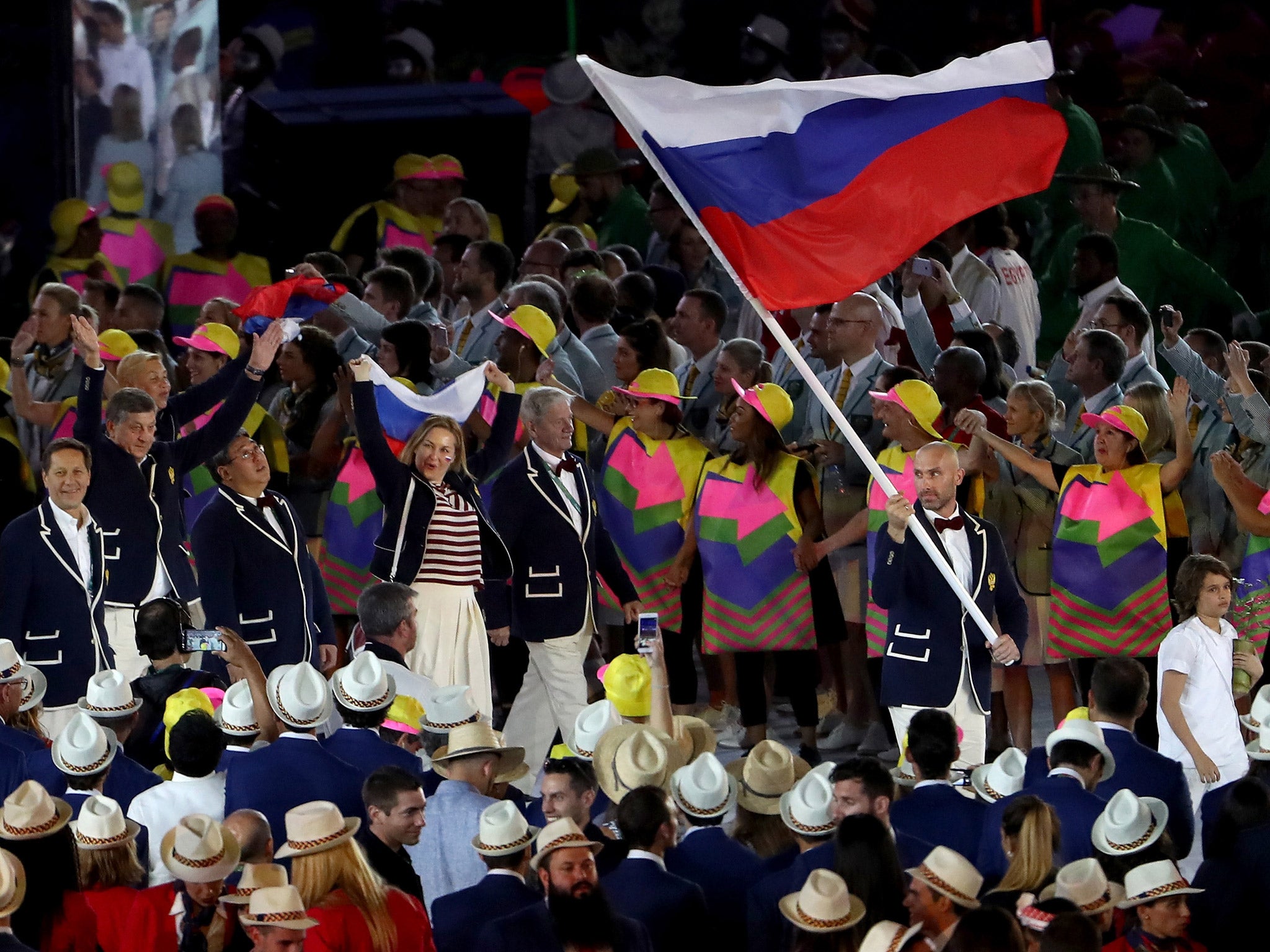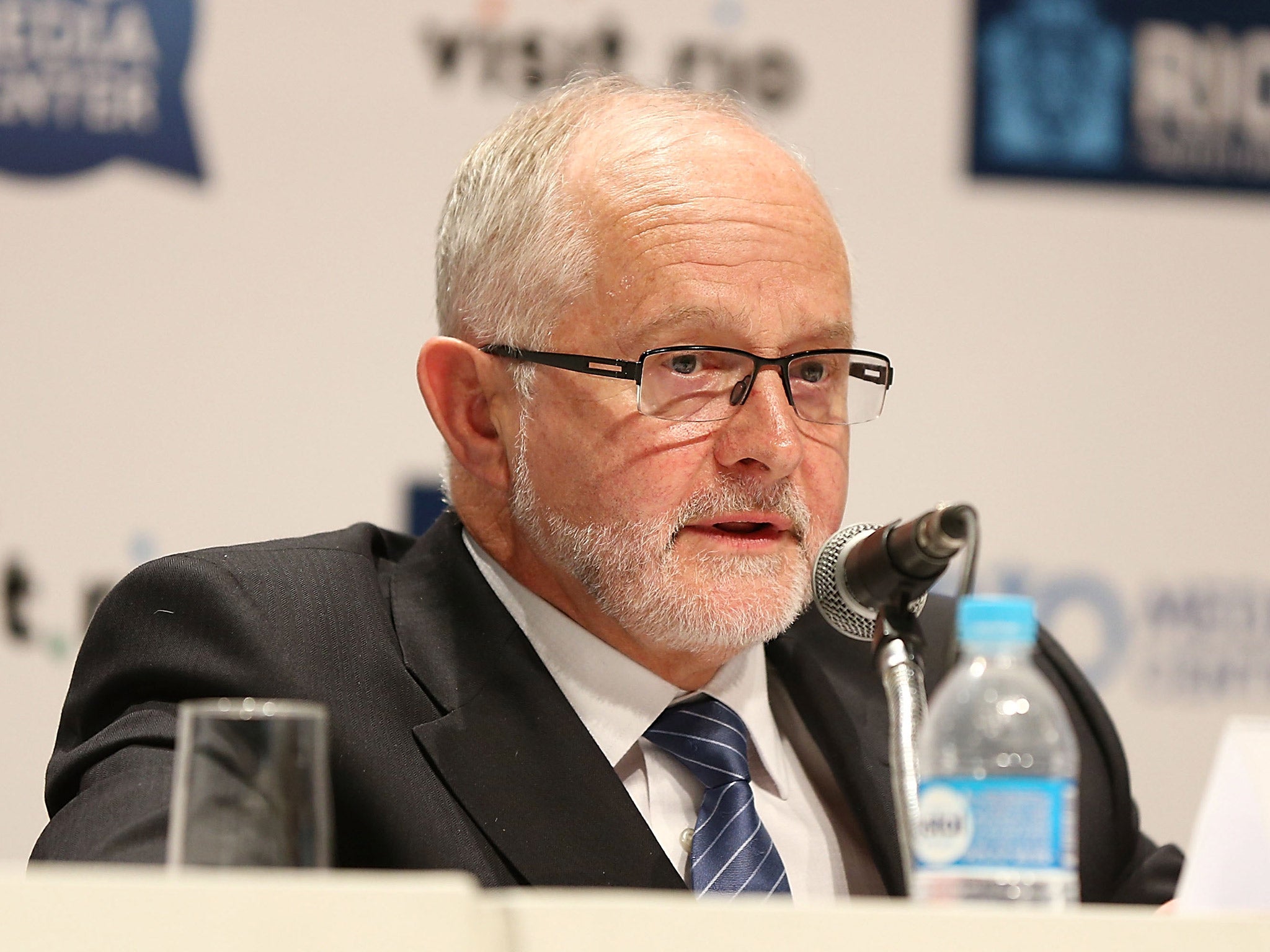Rio 2016: Russia Paralympics ban confirmed after losing CAS appeal against suspension
All Russian athletes have been banned from the Paralympics over a report into state-sponsored doping

Your support helps us to tell the story
From reproductive rights to climate change to Big Tech, The Independent is on the ground when the story is developing. Whether it's investigating the financials of Elon Musk's pro-Trump PAC or producing our latest documentary, 'The A Word', which shines a light on the American women fighting for reproductive rights, we know how important it is to parse out the facts from the messaging.
At such a critical moment in US history, we need reporters on the ground. Your donation allows us to keep sending journalists to speak to both sides of the story.
The Independent is trusted by Americans across the entire political spectrum. And unlike many other quality news outlets, we choose not to lock Americans out of our reporting and analysis with paywalls. We believe quality journalism should be available to everyone, paid for by those who can afford it.
Your support makes all the difference.Russia has had its blanket ban from the Paralympics confirmed after the Court of Arbitration for Sport dismissed its appeal against the International Paralympics Committee’s decision to prevent any Russian athletes competing in Rio next month.
A statement issued by the Cas on Tuesday morning upheld the IPC ruling to ban all Russian athletes from the Paralympic Games due to a report that accused the Russian Paralympic Committee of state-sponsored doping and cover-ups.
The statement read: “The Court of Arbitration for Sport has dismissed the appeal filed by the Russian Paralympic Committee against the decision rendered by the Governing Board of the International Paralympic Committee on 7 August 2016. As a consequence, the IPC decision is confirmed."
The ban came after the McLaren report – an investigation led by Canadian lawyer Richard McLaren commissioned by the World Anti-Doping Agency – alleged that evidence of tampering with samples provided by Russian athletes in order to cover up positive drug tests had been discovered.
The IPC revealed that it had secured an additional ten Russian Paralympic urine samples suspected of being swapped – taking the total to 45, involving 44 athletes, with more expected.
It led the IPC to make a ruling that the International Olympics Committee had decided against in banning all Russian Paralympic athletes from competing, with IPC president Philip Craven labelling Russia’s actions “disgusting” and “abhorrent”.
Craven said earlier this month after announcing the ban: “This is not about individuals or individual sports. This is about a state-sponsored doping system. This is not about athletes cheating the system but the state run system that is cheating athletes.
“There is a great, great threat to world sport; to what we would view as the sporting spirit, that cannot be allowed to change. [A threat to] fair competition, fair play, abiding by the rules. If we slacken off on that, we are finished, and we’re not going to.

“The facts really do hurt. They are an unprecedented attack on every clean athlete."
“It is our responsibility to ensure fair competition. That is vital to the integrity and credibility of Paralympic sport."
The decision means that Russia has exercised all of its options to try and overturn its ban from the Paralympics, with the Cas statement confirming that the RPC had failed to prove any reason why the suspension should be lifted.
“Following revelations related to the doping system in Russia, the IPC Governing Board suspended the RPC from IPC membership due to its alleged inability to fulfil its responsibilities and obligations to comply with the IPC Anti-doping Code and the World Anti-doping Code. The RPC filed a statement of appeal with the CAS in Lausanne on 15 August 2016 challenging the ban imposed by the IPC. The parties agreed to an expedited arbitration procedure with a hearing in Rio de Janeiro on 22 August 2016 in presence of the parties and their representatives.
“The Cas Panel in charge of this matter found that the IPC did not violate and procedural rule in dealing with the disciplinary process leading to the RPC’s suspension and that the decision to ban the RPC was made in accordance with the IPC Rules and was proportionate in the circumstances. The Panel also noted that the RPC did not file any evidence contradicting the facts on which the IPC decision was based.”
Join our commenting forum
Join thought-provoking conversations, follow other Independent readers and see their replies
0Comments